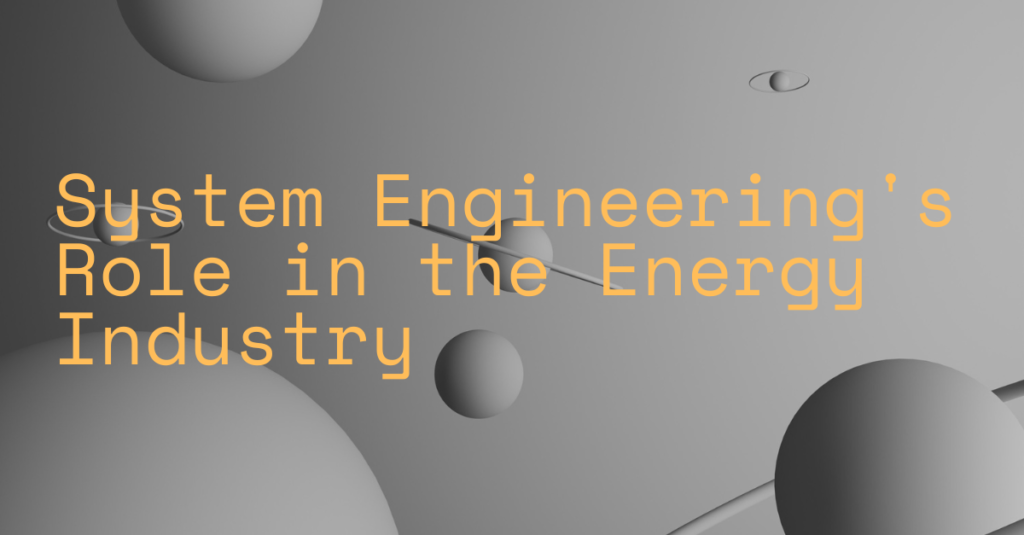
The energy sector is one of the world’s most complicated and quickly growing industries.
To address the demands of consumers, regulatory agencies, and manufacturers, engineers in this profession must design and create safe, efficient, and sustainable energy systems.
Engineers employ systems engineering as a fundamental strategy to attain this aim. It entails a methodical approach to designing, developing, and managing complex energy systems such as renewable energy systems, industrial energy systems, and energy storage systems.
Energy Systems Engineers’ Role
Energy systems engineers are essential in the energy business. They collaborate with a team of engineers to evaluate the needs of energy systems, develop the systems’ architecture, and guarantee that the systems satisfy all safety and environmental criteria.
Engineers in energy systems also ensure that systems are interconnected and optimized for optimal efficiency.
Complex Energy System Design
Designing sophisticated energy systems, such as solar power plants or natural gas power plants, is a multifaceted and challenging process.
Engineers must consider several aspects, including:
- Technology
- Cost
- Environmental effect
- Energy efficiency
Energy systems engineers are in charge of the design process, collaborating with other engineers to determine system requirements and build the system architecture. Engineers develop precise models of the systems, including their components and interconnections, using computer-aided design (CAD) technology. As systems get more complex, engineering teams often like to use a model-based systems engineering approach.
For an overview of MBSE, read the complete guide here.
Improving Energy Systems Through Systems Engineering
A systems engineering approach to energy systems takes into account the system’s entire lifetime, from idea and design to development, testing, and operation.
This guarantees that the system is designed and constructed to fulfil the demands of all stakeholders, such as customers, regulatory bodies, and manufacturers. Energy systems are also built and run sustainably and ecologically friendly, with variables such as energy consumption, climate change, and energy efficiency taken into account.
Energy System Integration and Optimization
A critical part of energy systems engineering is ensuring that energy systems are interconnected and optimized for optimal efficiency.
To guarantee that the whole energy system functions smoothly and efficiently, energy systems engineers must focus on integrating multiple systems, such as electrical, mechanical, and environmental systems.
Engineers also utilize simulation and modelling technologies to examine and optimize energy system performance and dependability. They can run numerous scenarios, discover possible issues, and determine how to make the system more efficient. Energy sector systems engineers collaborate with other engineers and scientists to guarantee that energy systems are built to fulfil environmental and safety laws while minimizing ecological effects.
Systems engineering, in addition to traditional energy systems, is crucial in the design and development of renewable energy systems.
Renewable energy engineers use systems engineering to develop and optimize solar, wind, and hydroelectric power systems. They also work on energy storage technologies such as batteries to ensure efficiency and dependability. The energy business is likewise becoming more concerned with lowering energy usage and enhancing energy efficiency.
Systems engineers play a critical role in developing technologies and systems that can aid in achieving these objectives. They could work on designing and constructing energy-efficient buildings or integrating renewable energy sources into the grid.
Systems engineering is an essential subject in the energy business, with several chances for engineers to work on cutting-edge technology while having a good influence on the environment. Many institutions include courses in systems engineering and even departments dedicated to studying energy systems engineering. Some students may also seek industrial internships to obtain hands-on experience.
Digital Systems Engineering with Valispace
Valispace is a powerful tool that helps energy sector systems engineers apply systems engineering principles to the design and development of energy systems. It enables real-time requirements and system model integration and promotes traceability throughout the development process.
To verify Valispace’s suitability for your project or to discuss specific needs, schedule a call and get on your way to smarter engineering.

